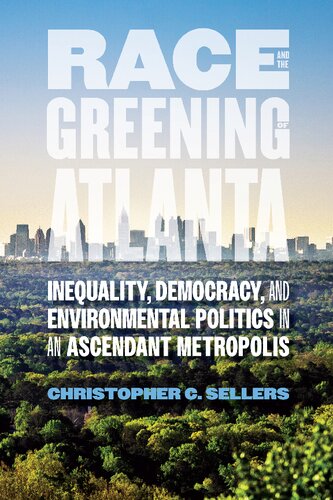

Most ebook files are in PDF format, so you can easily read them using various software such as Foxit Reader or directly on the Google Chrome browser.
Some ebook files are released by publishers in other formats such as .awz, .mobi, .epub, .fb2, etc. You may need to install specific software to read these formats on mobile/PC, such as Calibre.
Please read the tutorial at this link: https://ebookbell.com/faq
We offer FREE conversion to the popular formats you request; however, this may take some time. Therefore, right after payment, please email us, and we will try to provide the service as quickly as possible.
For some exceptional file formats or broken links (if any), please refrain from opening any disputes. Instead, email us first, and we will try to assist within a maximum of 6 hours.
EbookBell Team

4.8
64 reviewsRace and the Greening of Atlanta turns an environmental lens on Atlanta’s ascent to thriving capital of the Sunbelt over the twentieth century. Uniquely wide ranging in scale, from the city’s variegated neighborhoods up to its place in regional and national political economies, this book reinterprets the fall of Jim Crow as a democratization born of two metropolitan movements: a well-known one for civil rights and a lesser known one on behalf of “the
environment.” Arising out of Atlanta’s Black and white middle classes respectively, both movements owed much to New Deal capitalism’s undermining of concentrated wealth and power, if not racial segregation, in the Jim Crow South.
Placing these two movements on the same historical page, Christopher C. Sellers spotlights those environmental inequities, ideals, and provocations that catalyzed their divergent political projects. He then follows the intermittent, sometimes vital alliances they struck as civil rights activists tackled poverty, as a new environmental state arose, and as Black politicians began winning elections. Into the 1980s, as a wealth-concentrating style
of capitalism returned to the city and Atlanta became a national “poster child” for sprawl, the seedbeds spread both for a national environmental justice movement and for an influential new style of antistatism. Sellers contends that this new conservativism, sweeping the South with an antienvironmentalism and budding white nationalism that echoed the region’s Jim Crow past, once again challenged the democracy Atlantans had achieved.